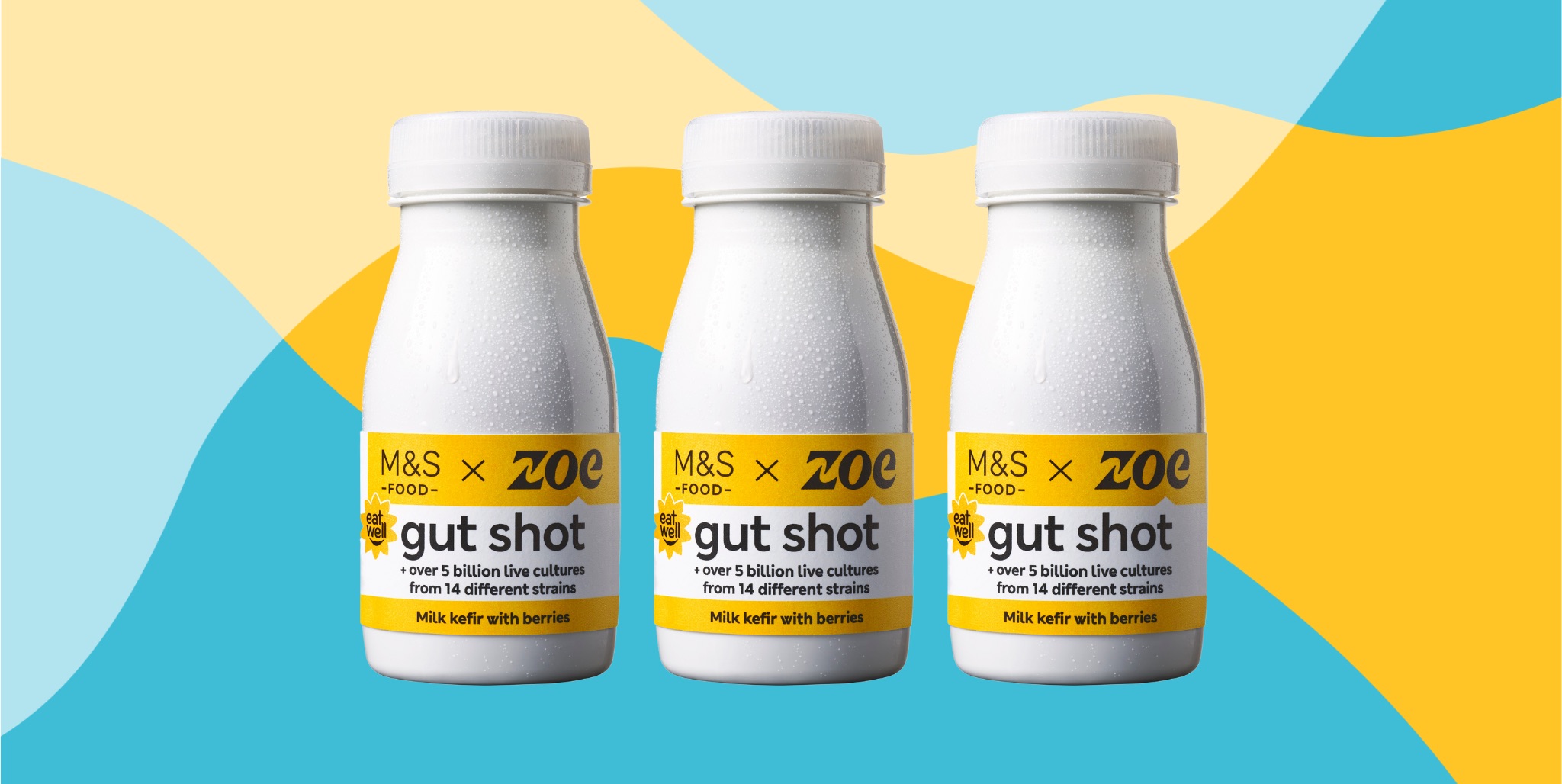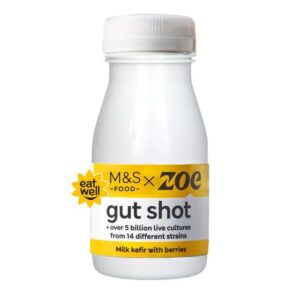More than anyone we know, Prof. Tim Spector has done the most to promote understanding of the microbiome, and in case you’ve been living under a stone, this is the colony of bugs that live in the deep, dark recesses of our guts (the small intestines to be precise) a place where the sun don’t shine!
We humans have around 22,000 genes. Impressive? Well not so much when you realise that humans have fewer genes than an earth worm or a fruit bat. In fact we don’t have that many more genes than a banana (I kid you not)

It turns out that the colony of trillions of bugs in our gut (and for that matter almost everywhere on our bodies) plays a central role in our health and wellbeing. They are “commensal” (eat what we eat..well they have no choice if you think about it). They even consume some of our calories which goes some way to explain the weight gain that follows if you napalm them with broad spectrum anti-biotics. In fact if you are lucky enough to have plenty of a bug called Christensenella in your guts you’ll likely be one of those people who seem to eat whatever they want and get away with it!
Now around 85% of our immune system is found in our gut, and the integrity of the gut lining itself is maintained by the microbiota. If those bug-colonies are damaged (termed dysbiosis) the gut lining becomes damaged and leaky. This means we cannot absorb the micronutrients that are key to our health and also allows bad stuff (toxins) to enter our system leading to inflammation, auto-immune conditions, type2 diabetes and even Dementia. The bugs also help make vitamins for us and provide the lactase enzyme which help us digest cows milk. So the lesson here is look after those bugs and they’ll look after you (symbiosis).
Back to Tim Spector and his impressive health app known as Zoe: According to the Zoe Health website they showed that people who followed the ZOE program significantly improved a range of measures linked to long-term health such as:
- decreases in triglycerides (a type of blood fat associated with heart disease and type 2 diabetes risk)
- improvements in gut microbiomes
- reductions in waist circumference
- weight loss toward a healthier weight
- Less “bad” cholesterol
- Lower blood pressure
- Lower blood sugar levels

All of this is based on published data from a proper clinical trial so its undoubtedly good news.
So in early Jan this year, when Zoe announced a new gut-health collaboration with food giant Marks & Spencer we followed the story with interest:
According to a company press release:
M&S Food x Zoe Gut Shot — a milk kefir with berries with over five billion live cultures from 14 different strains, developed with the US nutrition science company Zoe. The product launch responds to a growing consumer interest in gut health.
“At M&S, we want all of our food to be exceptional, delicious, of the highest quality, sourced and made with care — offering customers value with values,” said an M&S spokesman. “We always ensure a healthy choice is a delicious choice and we’re proud to be at the forefront of gut health innovation.”
“At Zoe our mission is to improve the health of millions,” adds Jonathan Wolf CEO of Zoe.
“We run the world’s largest microbiome and nutrition research study, with hundreds of thousands of members and bring expert-led science to the world via our free podcast, published research and social channels. I’m glad we’ve partnered with M&S to bring this delicious product to supermarkets across the nation, helping more people to improve their gut health.”
M&S has recently also launched its Good Gut range with over ten products, including cereals, yogurts and drinks. M&S Food’s 2025 goal is for 70% of its food sales to stem from the company’s healthy Eat Well range. No small ambition
Consumer interest in gut-healthy food is growing. M&S says the launch responds to the online upsurge in “gut health” searches, growing by 247% since 2021. Digestive health will be one of the key health-related drivers in food product development.
All of which begs the question is this simply an opportunity for the food industry to exploit the latest food-fad for profit, a genuine attempt to level-up the nation’s gut health, or both?
So lets take a closer look at the bona-fides of M&S / Zoe Gut Shot.
We checked the M&S website and found to our frustration that while there’s lots of hype about Gut-Shot, there’s almost zero meaningful information. Neither M&S webchat nor their phone line could help me with what the product contains. (Webchat promised to get back to me.. I’m still waiting)
Meanwhile all the hype could lead someone with food allergies or who is taking prescribed medicines to assume it must be inherently good for them when perhaps it isn’t. If M&S wants to make these expansive claims it has to be prepared to deal with consumer’s requests for info.
In addition, while M&S food is undoubtedly highly palatable, the majority of it is highly or even ULTRA processed. Is this a genuine attempt to improve the nation’s notorious poor health or simply marketing hype aimed at promoting a panoply of unhealthy M&S food at inflated prices to innocent consumers?
You might well ask if there are cheaper alternatives to store-bought probiotics, such Gut-Shot that would be just as good if not better for gut health
Well first of all we need to define “gut health” As we’ve said above , 85% of our immune system is in our gut, and the bugs that live there affect our mood, sleep and general health status. So the idea that a one-size-fits-all Gut Shot will help everyone is simply not credible. Our bodies and the microbiota that reside within are incredibly complex. That’s why ProLongevity provides personalized Precision Nutrition. But in general terms we recommend a range of fermented foods that humans have eaten for 1000s of years like Kefir, Kimchee, Zaurkraut and Tempe. Interestingly one firm is working on a range of fermented lagers: different versions to suit your needs. Bottom line, traditional fermented foods will be far more effective than an over-hyped and expensive Gut Shot
Gut-Shot is priced at £2 each – that’s a gut-wrenching £60 a month. Are there better, cheaper alternatives that are more accessible to the average person?
Absolutely! At its simplest just Eat Real Food. The ultra processed foods that make up 60% of UK calories (British teenagers eat an astonishing 80% of calories as UPF ) is a recipe for gut-disaster. When shopping, look at the BACK of the label. If it has more than 5 ingredients (and some names you’ve never heard of) AVOID! Eat like your grandparents did and you’ll generally do just fine
Conclusion: based on all that hype we’re tempted to ask “Gut-Shot or Bull-Shit” !! Most M&S food is less than healthy and much of it is highly processed. If M&S genuinely want to turn around the nation’s health, including our Gut Health, why is there so little information on Gut-Shot. (Hype and information are not the same thing) From our perspective M&S have spotted an “added value” marketing opportunity in the same way Greggs did with the Vegan Sausage role. (The only thing less healthy than a Greggs sausage role is a Gregg’s VEGAN sausage roll!) More on this here:
Because going vegan, or even improving gut health is perceived as good for us and our environment, food companies cynically attempt to exploit our sensitivities for their profit NOT our health. M&S are guilty. Don’t fall into their trap
For more information on the microbiota, diabesity and health just click any of these:
Worried about diabesity or any of the other health-related concerns discussed here? Book a free, zero-obligation call with Graham or one of the ProLongevity practitioners team. It might just save your life!





